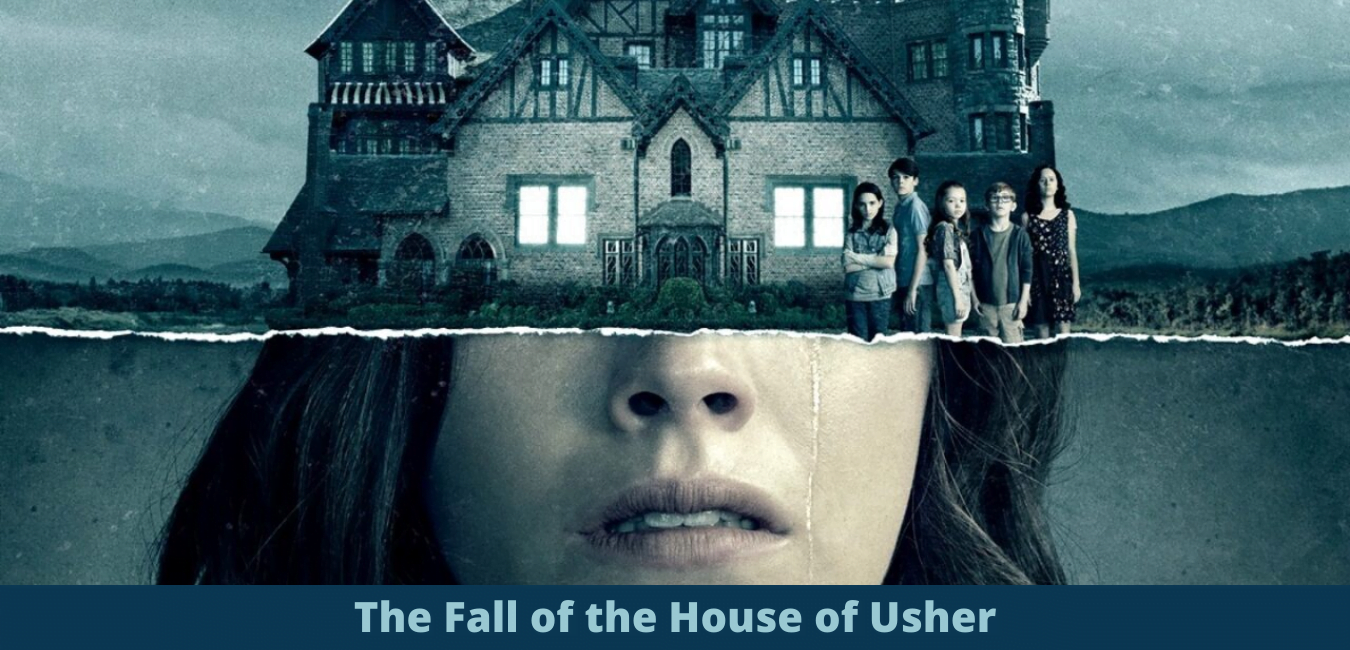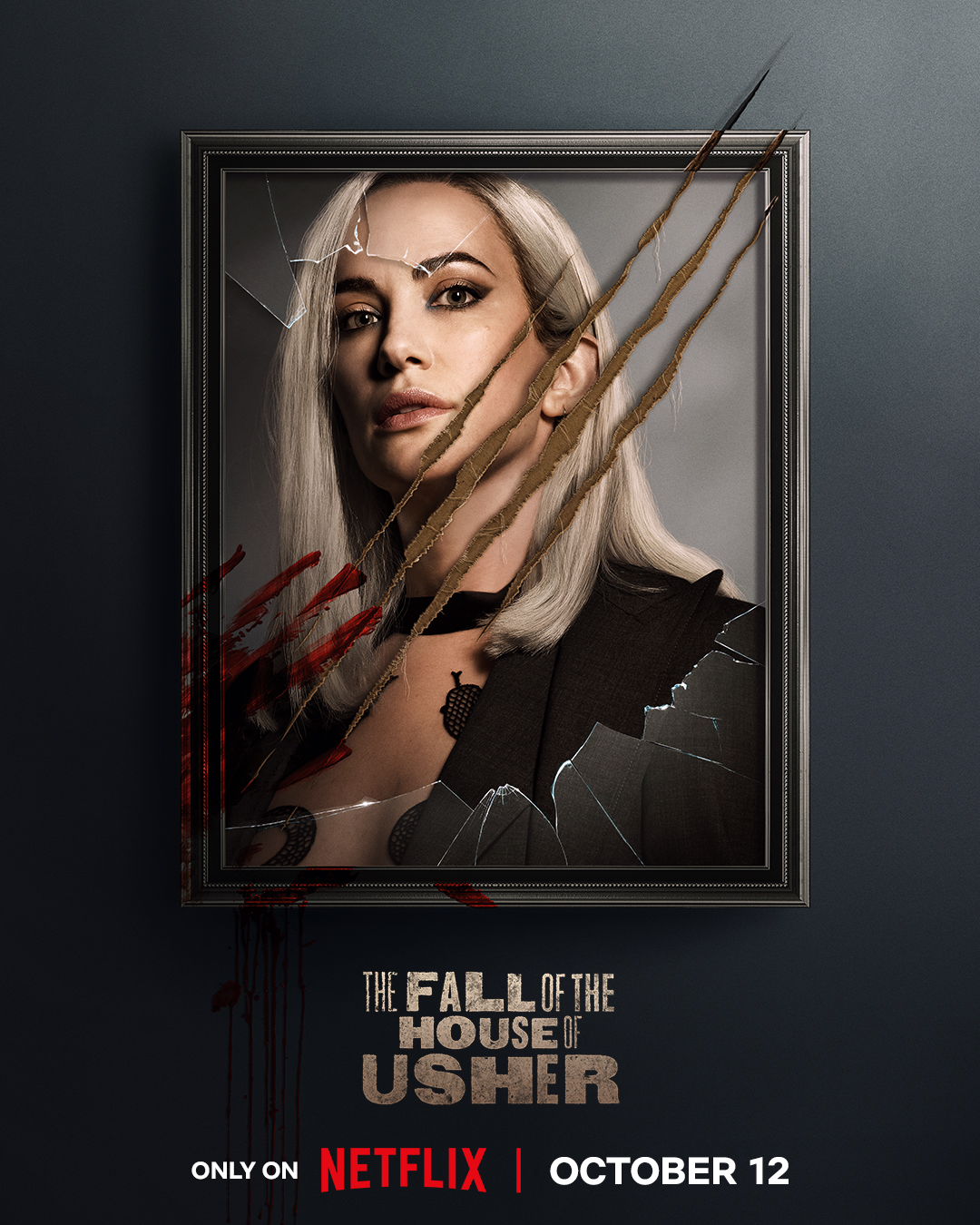Table Of Content

“There is a lot about my job that I love, but there are moments like these that bring me no joy,” Verna tells her in her bedroom after a conversation that found Lenore telling Roderick that it wasn't too late to use Fortunato and the family's largesse for good. Keep in mind that Lenore still had this pureness of mind after seeing her mother burnt within in inch of her life by acid (thanks to Prospero's foolish orgy party) and then tortured by her father, who himself had just been brutally killed in a ridiculous freak accident. BY THE TIME you reach the final episode of The Fall of the House of Usher, the latest of Netflix's horror limited series from writer/director Mike Flanagan, there have been a lot of scares, a lot of violence, and a lot of lore. But, still, a few lingering things remain that need to click in order for the series—based on the collected writings of Edgar Allen Poe—to really all fall into place. Roderick Usher (Bruce Greenwood) attends a joint funeral for a number of his adult children, and in a montage of press coverage, we see how a series of “freak accidents” has wiped out his entire bloodline. The Usher patriarch then sits in a dilapidated mansion with Carl Lumbly’s Auguste Dupin (based on Poe’s famous recurring character who is considered the first detective in fiction) and offers him a confession.
Roderick Usher
It’s important that Roderick and Madeline are cruel, selfish creatures—less so how they got that way. What’s more interesting is to watch how the fallout of their decisions fell on Roderick’s many children, all torn apart by some of Poe’s most memorable creations. In “The Fall of the House of Usher,” the setting, diction, and imagery combine to create an overall atmosphere of gloom. The story opens on a “dull, dark, and soundless day” in a “singularly dreary tract of country.” As the narrator notes, it is autumn, the time of year when life begins to give way to old age and death.
Film Credits
After Roderick gives Auguste his final confession, Madeline bursts through the door of the basement and strangles her brother to death — the same way their mother killed their father. Auguste stands outside in horror, as Verna stands atop the wreckage. After Leo (Rahul Kohli) wakes up from a bender with bloodstained hands to find his boyfriend Julius’ (Daniel Jun) cat stabbed to death in their living room, he knows he’s in trouble.
Edgar Allan Poe
The narrator helps Roderick put Madeline's body in the tomb, whereupon the narrator realizes that Madeline and Roderick are twins. The narrator also notes that Madeline's body has rosy cheeks, which sometimes happens after death. Over the next week, both Roderick and the narrator find themselves increasingly agitated.
Film
Only, as evidenced by the noises coming from the basement, Madeline wasn't quite dead. In 1979, Italian state channel RAI loosely adapted the short story, together with other Poe's works, in the series I racconti fantastici di Edgar Allan Poe.[33] It was directed by Daniele D'Anza, with Roderick Usher played by Philippe Leroy; music was composed by pop band Pooh. The bedroom door is then blown open to reveal Madeline, bloodied from her arduous escape from the tomb. In a final fit of rage, she attacks her brother, scaring him to death as she herself expires.
Expand lifestyle menu
(As a recluse, Poe often invited such accusations.) Later scholarship pursued alternative interpretations. Some scholars speculated that Poe may have attached special importance to the fact that Roderick and Madeline are twins, noting that Poe previously investigated the phenomenon of the double in “Morella” (1835) and “William Wilson” (1839). Other scholars pointed to the work as an embodiment of Poe’s doctrine of l’art pour l’art (“art for art’s sake”), which held that art needs no moral, political, or didactic justification.
More Must-Reads From TIME
It's the how and the why of their deaths that plays out over the course of Mike Flanagan's new horror anthology series, now streaming on Netflix. Siblings Roderick and Madeline Usher have built a pharmaceutical company into an empire of wealth, privilege and power; however, secrets come to light when the heirs to the Usher dynasty sta... Roderick and Madeline’s trauma begins when their devout mother, Eliza (Annabeth Gish), dies at home, and the twins bury her in a homemade coffin in the backyard. Eliza claws her way out and exacts vengeance on William Longfellow (Robert Longstreet) — her married boss, CEO of Fortunato Pharmaceuticals, and Madeline and Roderick’s neglectful father.
American horror drama television miniseries / From Wikipedia, the free encyclopedia
You’ll recognize a number of famous faces from projects like The Midnight Club, Midnight Mass, The Haunting of Bly Manor, The Haunting of Hill House, and more in this wicked horror series based on the works of Edgar Allan Poe. In exchange for this protection, both Roderick and Madeline had to consent to the bargain that at the end of Roderick's life, just before he was fated to die anyway, his entire bloodline would die with him. Roderick and Madeline would also have to die at the same time, leaving this world the same way they came into it. The siblings agreed to the deal, left the bar, and soon after became convinced that the whole thing had been a shared delusion. To secure their fortune — and future — two ruthless siblings build a family dynasty that begins to crumble when their heirs mysteriously die, one by one.
Every hidden Poe reference in 'Fall of the House of Usher' - Mashable
Every hidden Poe reference in 'Fall of the House of Usher'.
Posted: Fri, 13 Oct 2023 07:00:00 GMT [source]
Accordingly, commentaries on social injustice, morality, and utilitarianism proliferated in the mid-19th century. Poe conceived of his writing as a response to the literary conventions of this period. In “The Fall of the House of Usher,” he deliberately subverts convention by rejecting the typical practices of preaching or moralizing and instead focusing on affect and unity of atmosphere. Contemporary readers and critics interpreted the story as a somewhat sensationalized account of Poe’s supposed madness.
Having only recently been thrust into the life of the ultra-rich, Perry’s goal is to make life one big party, and he’s hoping to use his family’s money to achieve just that. Extremely cunning and biting, Camille L’Espanaye runs the PR for the family. She’s made her life’s work not only about spinning bad behavior into good press, but also collecting files filled with every dirty secret of those closest to her. As the eldest, Frederick Usher is the natural heir to his father’s company, but out of all of his siblings, he’s the least equipped to do so.

Several days later, Roderick tells the narrator that Madeline has died, and they lay her to rest in a vault. In the days that follow, the narrator starts to feel more uneasy in the house, and attributes his nervousness to the gloomy furniture in the room where he sleeps. The narrator begins to suspect that Roderick is harbouring some dark secret. The narrator and Roderick place her in a tomb despite her flushed, lively appearance. In the tale's conclusion, Madeline escapes from the tomb and returns to Roderick, scaring him to death. Fearing that her body will be exhumed for medical study, Roderick insists that she be entombed for two weeks in the family tomb located in the house before being permanently buried.
He’s having visions of monstrous ghosts, including the recurring specter of Verna (Carla Gugino), a figure that connects most of these tall tales as a sort of vengeful force of karma, the devil come to take what she’s due from a man who profited off the pain of others. The overarching narrative of The Fall of the House of Usher loosely follows Poe's 1839 short story of the same name, with Roderick recounting his decades-spanning tale to Auggie inside his decrepit childhood home. “The Fall of the House of Usher” updates the work of Edgar Allan Poe for the era of Big Pharma, turning his most famous tales into a sprawling story of the decline of a wealthy American family. It’s “Succession” meets The Tell-Tale Heart, a story of vengeance, power, betrayal, and bloody parts. ‘The Fall of the House of Usher’ is an 1839 short story by Edgar Allan Poe ( ), a pioneer of the short story and a writer who arguably unleashed the full psychological potential of the Gothic horror genre.
A “playboy” with a drug for every occasion, Leo welcomes the ability to numb the pain of his reality, but his drug use has started to become a problem for his boyfriend, Julius. Incredibly intelligent, driven, and calculating, Madeline has always been the brains behind Fortunato. Whenever her brother falters, she’s always there to give him a push, making them a formidable duo. While she loves Roderick, her unrelenting drive and desire for success wouldn’t hold her back from stepping over him, if need be. Once Roderick and Madeline were the only ones left in the bar after a long night of drinking, Verna revealed to the twins that she knew what they had done. But, if they agreed to her terms, she could guarantee that they would not only get away with Rufus' murder but also rise to control Fortunato's billion-dollar painkiller empire and never be convicted of a single crime.
Loosely based on various works by 19th-century author Edgar Allan Poe (most prominently the eponymous 1840 short story), the series adapts otherwise unrelated stories and characters by Poe into a single nonlinear narrative set from 1953 to 2023. It recounts both the rise to power of Roderick Usher, the powerful CEO of a corrupt pharmaceutical company and his sister Madeline Usher, the firm's genius COO, and the events leading to the deaths of all six of Roderick’s children. It stars an ensemble cast led by Carla Gugino as a mysterious woman plaguing the Ushers, Bruce Greenwood as an elderly Roderick and Mary McDonnell as an elderly Madeline. It turns out that almost every branch of the Usher family tree has been cut by violent horror. ” “No, not before,” he replies in one of the show’s many glimpses of Flanagan’s viciously dark sense of humor. (Poe had one too.) Roderick has been haunted by all his awful children who have shuffled off this mortal coil, and it’s because it feels like the ghosts are finally coming for him that he is ready to confess.
But things aren't always as they seem; the final episode takes us inside everything that lingers, bringing everything full circle. Presenting vintage Poe stories filtered through Mike Flanagan's deliciously dark lens, The Fall of the House of Usher will get a rise out of horror fans. ‘The Fall of the House of Usher’ can also be analysed as a deeply telling autobiographical portrait, in which Roderick Usher represents, or reflects, Poe himself.

No comments:
Post a Comment